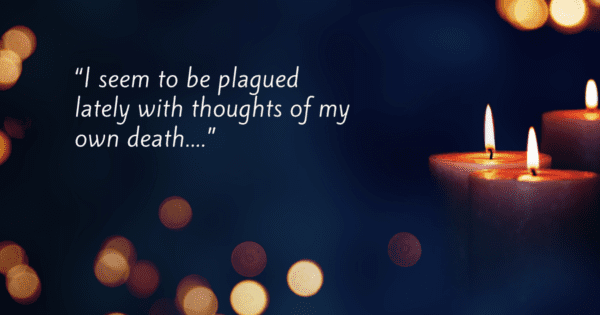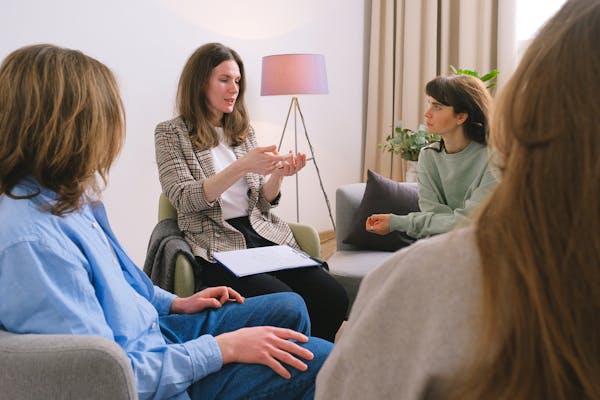“I brought up something the person was unaware of and she ignored me.”
~~~~~~~~~~~~~~~~~~~~~~~~~~~~~~~~~~~~~~~~~
Anne writes, “A Focusing partner of mine recently brought up the belief that ‘Focusing doesn’t help with a person’s blind-spots.’ I’ve found this to be true in that if I make a suggestion that a Focuser might want to look at something seemingly important that they seem unaware of, they ignore me or tell me that don’t want me to make suggestions anymore, so I stop, following the Focusing protocol. Do you have anything to say about how to use Focusing with ‘blind-spots’?”
Dear Anne,
Absolutely, Focusing can help with blind-spots! In fact, Focusing is all about becoming aware of something that has been out of awareness or that has never formed in awareness before.
But it’s a process… and a process goes at its own pace.
When someone from outside — in your example, that would be you — calls attention to something that seems to be a “blind-spot,” it’s very likely to be the wrong timing, or the wrong direction. After all, these things are out of awareness for a reason. And what one person calls a “blind-spot,” someone else might call “a vulnerable place that needs to be hidden for now.”
That’s why the guidelines of Focusing partnership are weighted in favor of the Focuser being in charge of the timing and of what is invited into awareness… because only the Focuser has access to the sense of the right timing of what is ready to emerge.
I’m not saying that the Companion can never mention such things. But there are guidelines here too, that make it much more likely that you won’t be ignored or asked to keep quiet.
The first and most important is that you, the Companion, need to be Self-in-Presence. You need to be in touch with yourself, sensing in your body as you are there with the Focuser. When you first get the
impulse to call something to the Focuser’s awareness, don’t act on it yet. Wait… keep reflecting and following the Focuser’s process, and silently acknowledging your own reactions, if any. Might you be
identified with a part of you that’s feeling impatient or wanting something to change? (If you try to help from that position, it will just stop the process!)
And what about right timing? Just because you have a suspicion that something is outside the Focuser’s awareness, doesn’t mean that now is the right time to bring it in. The Focuser’s process follows an inner sense of rightness, and an inner timing. You could be saying something totally right, but if it doesn’t follow that inner timing, it won’t fit… and might even make the process take longer.
Only after you’ve waited quite a while, and your sense of something being missing from the Focuser’s awareness has only grown stronger… and you have a sense that this is really the right time to offer your perception… then offer it. And be aware you still could be wrong!
“I’m wondering — and you might check if this is right — …”
The way that you offer your idea to the Focuser is crucially important as well.
First of all, I don’t advise asking a question. Questions are much more often experienced as intrusive by the Focuser… so if you don’t want your suggestion to be ignored or pushed away, by all means don’t offer it as a question.
Here’s a way that is not a question: “I’m wondering if there might even be a part of you that doesn’t WANT your marriage to succeed.” (For example.)
But since this is such a radical thing to do — to call the Focuser’s attention to something outside of
awareness — you need to include an acknowledgment that only the Focuser can really know if that is right.
“I’m wondering–and you might check if this is right– if there might even be a part of you that doesn’t WANT your marriage to succeed.”
And finally, because we know that something coming in from the outside (you) might very well get the person off-track, you need to also build in a way for the person to ignore you — after all, if your intervention doesn’t fit, you hope they WILL ignore you.
Like this: “And if that doesn’t fit for you, never mind, just let it go.”
If you do this only very very rarely, and be sure you are Self-in-Presence when you do, then you might find there are moments when your perspective is of value to the Focuser.
But what about the statement that “Focusing doesn’t help with blind-spots”? Are the careful rare interventions we’re talking about the only way to help? Not at all… but the rest will have to wait for next week!





